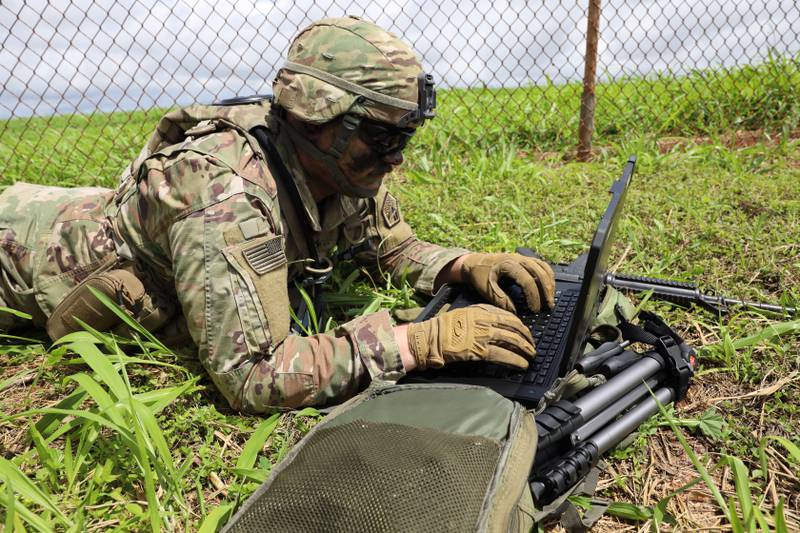‘Hacktivists’ join the front lines in Israel-Hamas war
WASHINGTON and JERUSALEM — When Hamas sprung its deadly assault on Israel in early October, its militants came from land, air and sea.
The Palestinian group launched rockets at populous areas, deployed drones to destroy observation posts, used motorized gliders to float fighters over fortified borders and dispatched speedboats into defended waters. The effects were instantly tangible, with many Israelis killed, abducted or displaced. Infrastructure, including hardened military installations, was damaged.
Less apparent were the virtual campaigns waged before, during and after the opening salvos, though not necessarily by Hamas itself. Hackers supporting its cause hijacked billboards and flooded phones with threatening texts. Grisly videos quickly circulated online, and social media platforms such as X, formerly Twitter, were saturated with front-line footage, some of it fake.
The online efforts serve many purposes, experts told C4ISRNET, including influencing public opinion, softening resistance and hampering the emergency response.
RELATED

Cyberattacks “are increasing daily, with hundreds of attacks we’ve monitored so far,” said Gil Messing, the chief of staff at Check Point Software Technologies, a cybersecurity company with roots in Tel Aviv. “Our data shows an 18% increase in attacks on Israeli targets since the beginning of the war, and we expect it to continue.”
Hack-tivity
Outside groups with vested interests in the Israel-Hamas fight are dominating the cyber battlefield.
Operations include defacing popular websites and flooding networks with artificial traffic, rendering them unable to function. This tactic is known as a distributed denial-of-service, or DDoS, attack. Similar moves were seen in the opening days of the Russia-Ukraine war.
“Cyberattacks happened all along, before the [Hamas attack] and after,” said Messing, whose team monitors dozens of third-party groups around the world.
“Hacktivists play a critical role here and actually carry out the vast majority of attacks,” Messing added, using a term for hackers motivated by political or social movements.
Cloudflare, an American company that provides cybersecurity and network services, said media sites were…


